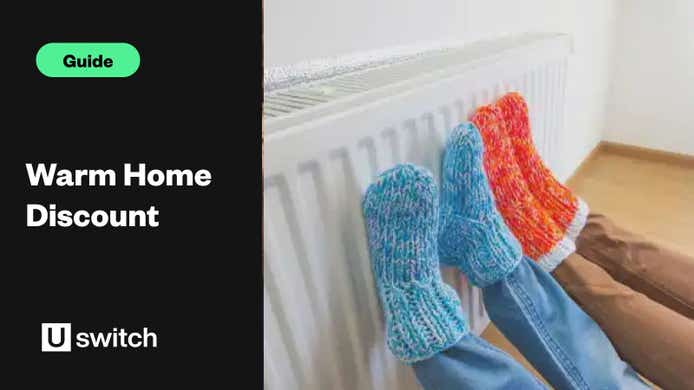Usually, the easiest way to stay on top of your energy spend would be to switch your energy deal to the cheapest one in your part of the country. There are deals returning to the market, so it's possible to compare energy prices and switch through energy comparison sites like ours. However, switching might not be right for everyone.
Regardless of whether you stick with the deal you're on or whether you switch energy, bills remain high and are putting a great deal of financial pressure on wallets and bank balances.
There have been various energy grants and discount schemes available for certain energy customers since before the collapse of the market. However, it can be difficult to work out what you’re eligible for.
Our energy help scheme eligibility checker asks a few simple questions about your age, pension status, income and benefit allowance to see whether you qualify for government support.
How to find out whether I qualify for energy help
To find out whether you qualify for an energy help scheme, use our eligibility checker below. All you need to do is enter a few details and we will tell you how to take the next steps.
Do I qualify for an energy help scheme?
You can use our eligibility checker below to see whether you qualify for any energy help schemes.
Which energy help schemes are available?
There are many different help measures available, and you may qualify for more than one. To see the different help schemes available, take a look at our list below:
| Energy help scheme name | Who can get it? | Which nation(s) does it apply to? | How much discount could I get? |
|---|---|---|---|
| Warm Home Discount | Those who receive certain means-tested benefits | England, Scotland and Wales | £150 |
| Cold Weather Payment | Those who receive Pension Credit and don't live in a care home, and those on certain benefits | England and Wales | £25 for each seven-day period of very cold weather between 1 November and 31 March |
| Winter Fuel Payment | Those over state pension age who also receive certain benefits | England and Scotland | Either £200 or £300 |
| Child Winter Heating Payment | Children under 19 who receive certain disability benefits | Scotland | £251.50 |
| Winter Heating Payment | Low-income households | Scotland | £58.75 |
Councils and local authorities are also allocated government funding to help vulnerable households.
How do I apply for energy help?
In many cases, the discounts on schemes like the Warm Home Discount and Cold Weather Payment will be applied automatically. However, there could be circumstances in which you have to apply yourself - check out the schemes’ individual guides for more details.
Will the government provide help with energy bills?
There is no widespread government support designed to help with energy bills. In previous years there have been cost-of-living payments and initiatives like the Energy Bill Support Scheme, but there are no plans to introduce a similar scheme for the 2024-2025 winter.
Can my supplier provide help with energy bills?
Your supplier may also be able to offer bespoke help and assistance with managing and paying your energy bills - click below for links to some of the bigger suppliers' help sections:
You could also see if you can cut your energy usage and reduce your bills with our energy-saving tips.
“With the sharp rise in bills across the UK, government contribution schemes can be a huge benefit to many. There are still a lot of people in the UK who don't realise that they may be eligible for an energy help scheme.
“Checking eligibility each year is a good routine to get into, as the criteria could have changed since last checking. Using our eligibility checker is a great first step.”
FAQs
What will happen to energy prices in 2025?
Ofgem's energy price cap level is set at £1,720 for an average use household paying by Direct Debit until 30 September 2025. It's difficult to predict what will happen in the autumn so it could be worth running an energy comparison to see if you could save money. If you're not already on a fixed deal, it's likely you're paying more than you need to.
What is a winter fuel allowance?
A winter fuel allowance (or Winter Fuel Payment) is an annual energy payment support scheme that allocates either £200 or £300 for those who need help paying their energy bills. It is paid out between November and December. For 2024, you’re automatically eligible if you were born on or before 23 September 1958.
What is the difference between savings credit and guarantee credit?
Pension Credit consists of two parts: Guarantee Credit and Savings Credit. You could receive one or both parts. Guarantee Credit tops up your weekly income to a minimum amount and is available to those who reached State Pension age (66 years old). Savings Credit is a small top-up for people who have a modest amount of income or savings, and is only available to those who reached State Pension age before 6 April 2016.
Why am I not eligible for any energy payment schemes?
The main reasons you would be ineligible for energy payment schemes are:
- You’re not of pensionable age
- You’re not eligible for work or disability benefits
- Nobody you live with is eligible for work or disability benefits.
If you’re struggling to pay your energy bills, you can see what other help from charities and energy suppliers might be available.




